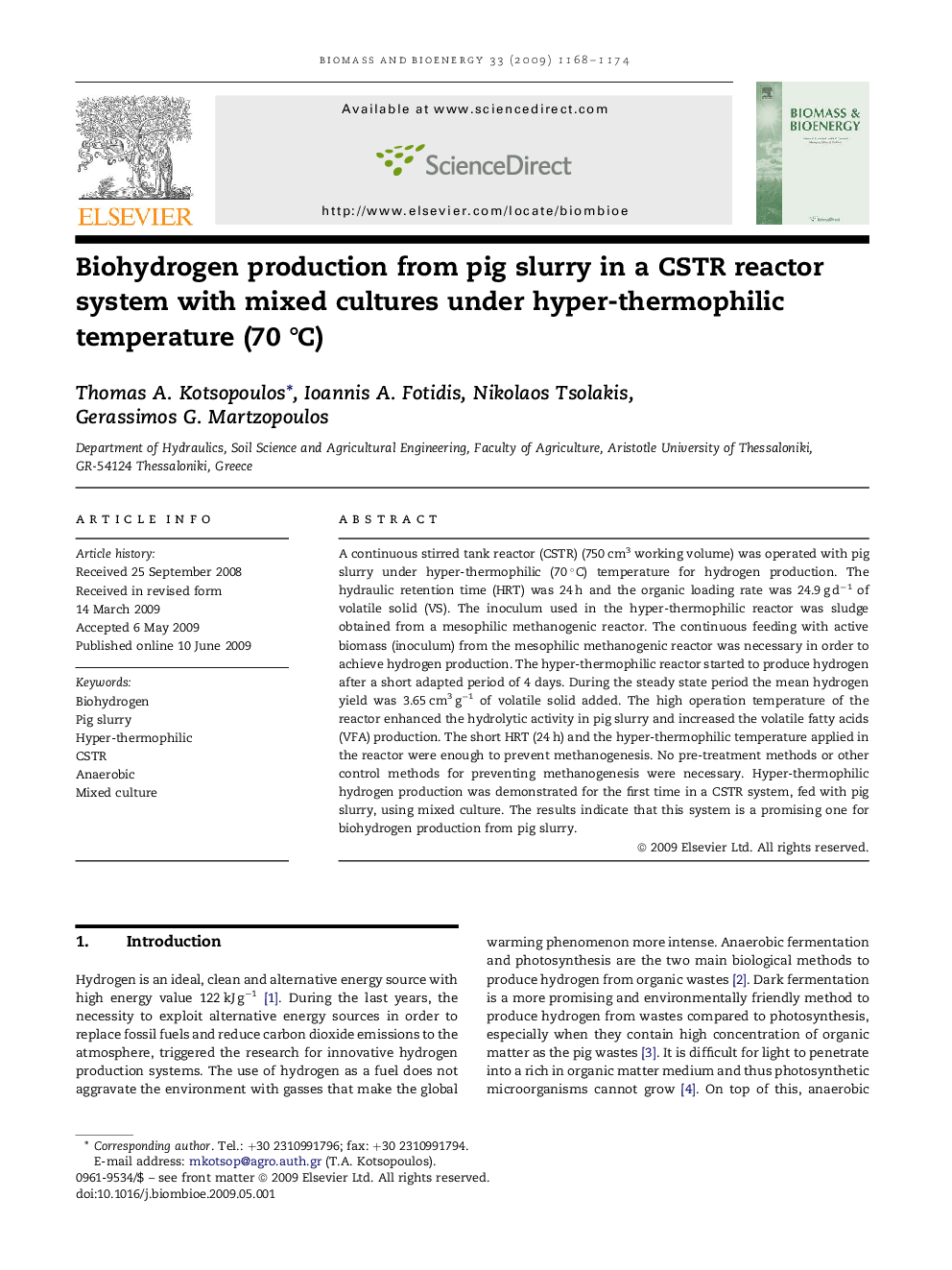| Article ID | Journal | Published Year | Pages | File Type |
|---|---|---|---|---|
| 677934 | Biomass and Bioenergy | 2009 | 7 Pages |
A continuous stirred tank reactor (CSTR) (750 cm3 working volume) was operated with pig slurry under hyper-thermophilic (70 °C) temperature for hydrogen production. The hydraulic retention time (HRT) was 24 h and the organic loading rate was 24.9 g d−1 of volatile solid (VS). The inoculum used in the hyper-thermophilic reactor was sludge obtained from a mesophilic methanogenic reactor. The continuous feeding with active biomass (inoculum) from the mesophilic methanogenic reactor was necessary in order to achieve hydrogen production. The hyper-thermophilic reactor started to produce hydrogen after a short adapted period of 4 days. During the steady state period the mean hydrogen yield was 3.65 cm3 g−1 of volatile solid added. The high operation temperature of the reactor enhanced the hydrolytic activity in pig slurry and increased the volatile fatty acids (VFA) production. The short HRT (24 h) and the hyper-thermophilic temperature applied in the reactor were enough to prevent methanogenesis. No pre-treatment methods or other control methods for preventing methanogenesis were necessary. Hyper-thermophilic hydrogen production was demonstrated for the first time in a CSTR system, fed with pig slurry, using mixed culture. The results indicate that this system is a promising one for biohydrogen production from pig slurry.
